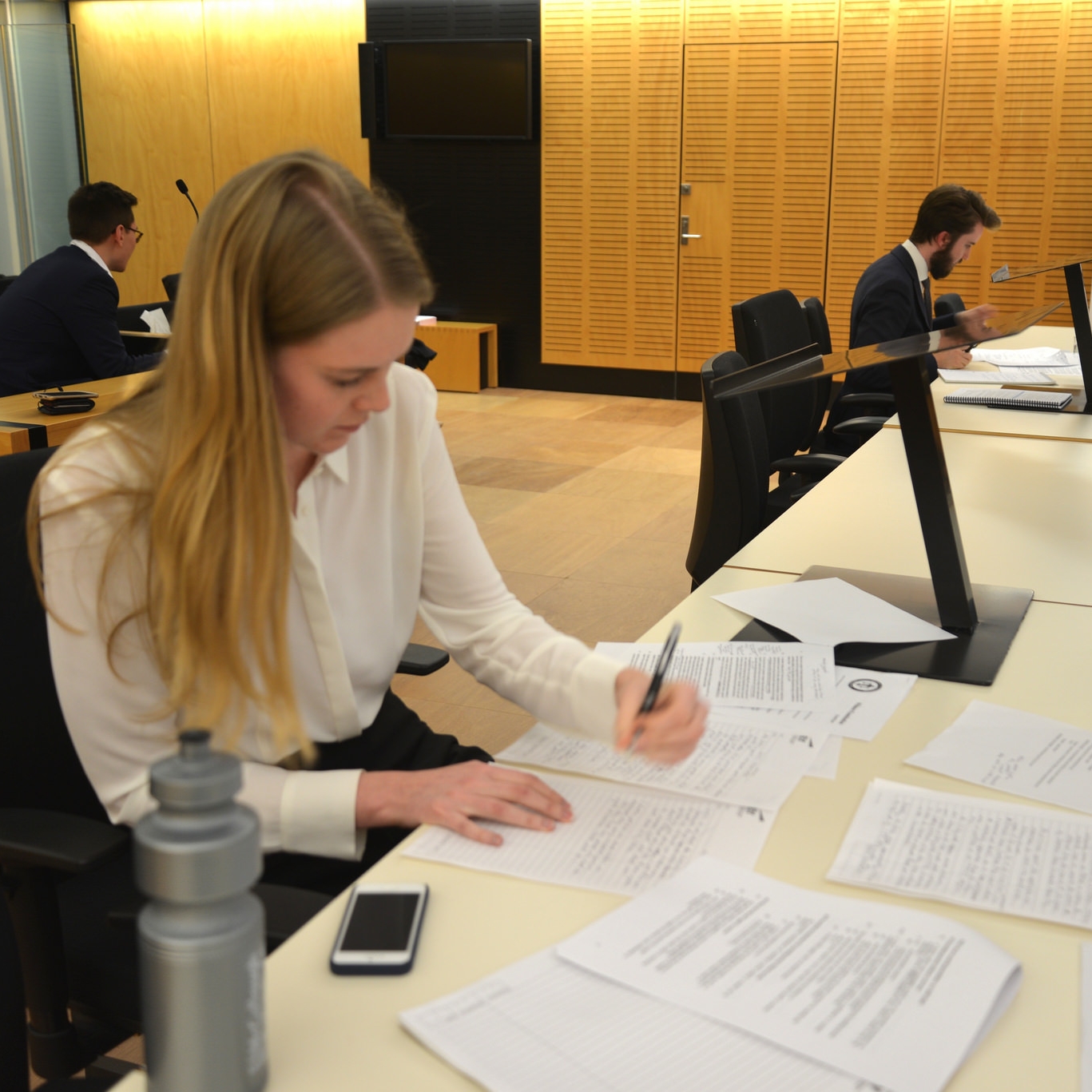Whether you want to negotiate deals, interview clients or present submissions, the UQLS has the competition for you. Put your study to practice by competing as acting-solicitors and barristers, developing your legal research, communication and oral presentation skills.
If you have any questions concerning our internal (UQ) competitions, contact us at vpinternalcompetitions@uqls.com. If your questions pertain to any of our external (intervarsity, domestic, or international) competitions, contact us at externalcompetitions@uqls.com.
What internal competitions do we offer?
In Semester One:
Junior Moot
Senior Moot
Client Interviewing
Mediation
In Semester Two:
Witness Examination
Junior Negotiation
Senior Negotiation
Where can you find us?
Competitions Group
To keep up to date, make sure you join the Competitions Group on Facebook here. The Competitions team will be posting about our how-to sessions and workshops, external opportunities and the success of our teams.
The TCB Mooting Website
Stay up to date with all information relating to external competitions at UQ here. The TCB Mooting Website is constantly updated with key dates and information relating to registration as well as details of new competitions on offer each year.
Want to know more?
The Competition Rules contain all of the rules that competitors must abide by after registration. The Competitions Rules are updated each year so please make sure you read them thoroughly. You can read them here.
Raise the Bar is a guide for competitors. It provides a summary of the rules and tips from successful past competitors. The handbook also contains testimonials from past competitors for both internal and external competitions. We recommend that every competitor reviews the publication before they register. The 2024 edition can be viewed here.
Mooting
Mooting attracts high achieving and ambitious students who are interested in advocacy and advancing their legal research and drafting skills. To excel, students must work together, approach complex legal questions from multiple perspectives and hone their oral submissions
Negotiation
In Negotiation, students are exposed to the commercial aspect of legal practice and are pushed to secure positive business and legal outcomes for their client. Negotiation requires students to grapple with their client’s instructions and priorities, professionally engage with students representing an opposing client and make compromises to reach a settlement.
Client Interviewing
Client Interviewing requires students to engage in ‘everyday advocacy’ with a prospective client. The competition rewards students who can be personable and professional when faced with difficult ethical and legal issues. Students learn to communicate accurate legal advice in plain English and consider the practical steps required to achieve the outcomes their client seeks.
Witness Examination
Witness Examination puts students in the position of counsel in either a civil or criminal trial. The competitors hone their speaking skills by delivering opening statements, examination in chief, cross examination and closing arguments. This competition fosters flexible and dynamic thinkers, and reinforces important procedural and evidentiary knowledge.
Mediation
A Mediation is a process in which the parties to a dispute, with the
assistance of a dispute resolution practitioner (the mediator), identify the
disputed issues, develop options, consider alternatives and endeavour to
reach an agreement. The biggest difference in mediation when compared
to other competitions is the involvement of the mediator in the process. A
Mediation Session will consist of the Mediator and two Competing Teams,
with two Team members (Client and Counsel) on each side representing
the Requesting Party and the Responding Party. Each party receives a set
of common facts with each party also receiving their own confidential
facts. Teams will work through the issues identified in the problem with
the mediator in to meet their client’s and the party’s mutual interests.
Adapting to the interests of the other party while also advocating for your
own client’s interest is an important part of mediation.








